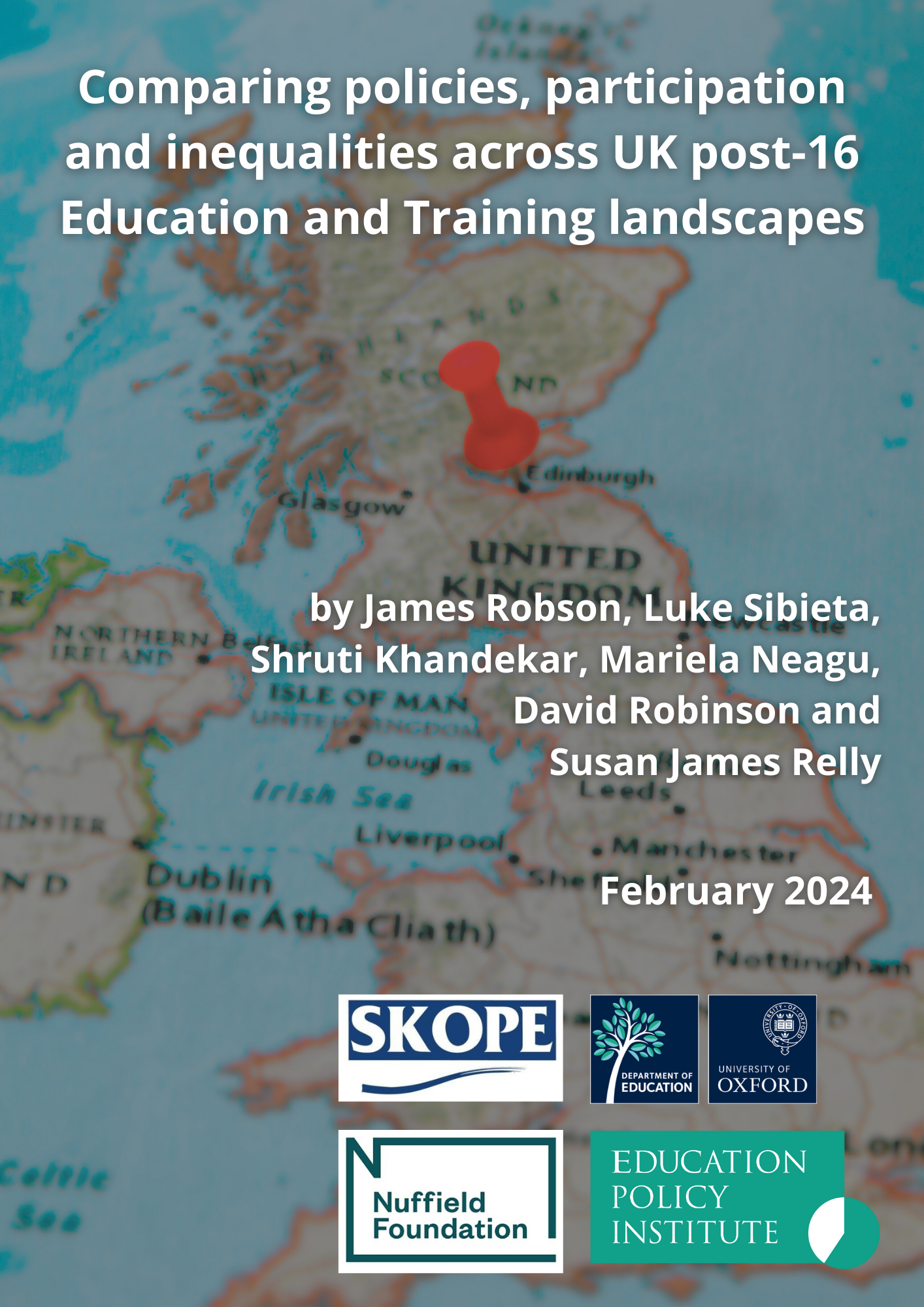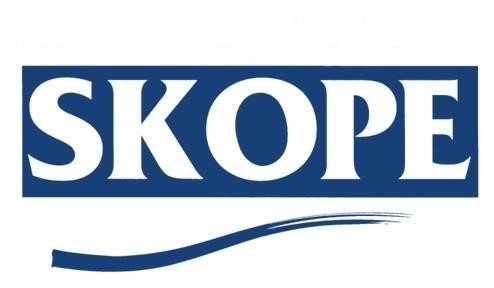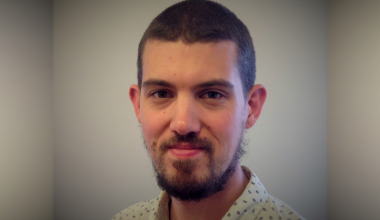This report reveals major differences in the provision of post-16 education and training (E&T) across the UK nations and exposes stark inequalities in outcomes for young learners.
The report identifies differences in E&T policy across the four devolved nations; shows how these differences impact pathways and choices for young learners; and analyses how these differences are reflected in learner outcomes and inequalities.
The report finds that:
- There has been a very high level of policy churn experienced within UK E&T and this has been detrimental. The near–constant policy churn harms the morale of staff and stakeholders, as well as negatively shaping the aspirations of young people and their perceptions of E&T pathways.
- There has been significant and growing divergence in education and training policy across the four nations, particularly since devolution in 1999.
- Wales has the highest share of pupils ‘Not in Education, Employment or Training’ (NEET). Nearly 11 per cent of young people aged 16-18 in Wales were classified as NEET in 2022-23, compared with 8 per cent in England, 9 per cent in Scotland and 5 per cent in Northern Ireland.
- Education and labour market outcomes are also worse for working class young people in Wales. Young people in Wales from working class backgrounds were the least likely to hold A-level equivalent qualifications (56 per cent in Wales, compared with 60-65 per cent for working class young people in the rest of the UK). Young people from working class backgrounds in Wales were also the least likely to be in employment (71 per cent) when compared with the rest of the UK (74-78 per cent).
- Fewer apprenticeships are taken by young people in England and Wales than in Scotland and Northern Ireland. In England and Wales, only around 20 per cent of apprenticeships are taken by 16–18-year-olds. 16-18/19-year-olds make up a larger share of total apprenticeships in Scotland (37 per cent) and Northern Ireland (52 per cent).
- Young people are much more likely to attend schools rather than colleges in Scotland and Northern Ireland. About 79 per cent of young people aged 16–17-year-olds were in schools in Scotland and around 60 per cent in Northern Ireland. These figures were much lower in England (45 per cent) and Wales (35 per cent), with young people more likely to go to colleges.
- Higher Education participation among students from lower socio-economic backgrounds is highest in England. In England, Wales and Scotland there has been an increasing share of higher education enrolments from students from the most deprived areas.
- Across all four nations, female school leavers are more likely to progress to Higher Education.
The report recommends that:
- More active and urgent action is required in Wales. Policymakers in Wales should be taking more urgent and active steps to understand and improve post-16 educational outcomes and inequalities.
- A greater policy focus on inequalities is needed. Equipped with better data on inequalities between different groups of students, policymakers across the four nations should be better placed to address the inequalities in post-16 access and outcomes.
- A new stable policy settlement is needed. This will require political consensus within each nation on goals and ambitions that can be realised, well-funded institutions and structures, and a stable set of qualifications.
- Data and statistics should be better, more comparable and more focused on inequalities. The UK government and devolved administrations should make more effort to produce data in ways that allow for comparisons, particularly in terms of inequalities in access to different pathways and outcomes, through linked administrative data.
You can read the report in full here.

The Centre for Skills, Knowledge and Organisational Performance (SKOPE) is a multi-disciplinary research centre based at the University of Oxford. Established in 1998, SKOPE was originally one of the ESRC’s designated research centres, receiving an unprecedented three-rounds of centre funding. Our central aim is to examine the links between education and training and work, focusing particularly on the acquisition and use of skills and knowledge, policy, productivity, product strategies, and economic performance of individuals, organisations, and nations. Find out more about our work here.

This report has been produced as part of a project funded by the Nuffield Foundation. The Nuffield Foundation is an independent charitable trust with a mission to advance social well-being. It funds research that informs social policy, primarily in Education, Welfare, and Justice. It also funds student programmes that provide opportunities for young people to develop skills in quantitative and scientific methods. The Nuffield Foundation is the founder and co-funder of the Nuffield Council on Bioethics, the Ada Lovelace Institute and the Nuffield Family Justice Observatory. The Foundation has funded this project, but the views expressed are those of the authors and not necessarily the Foundation. Visit www.nuffieldfoundation.org



